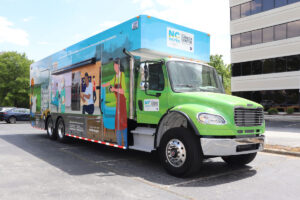Many people in the workforce are all too familiar with the education requirements on job applications. Millennials and Gen Z generations were regularly conditioned to believe that college was the main pathway to a decent job. So, many went into the realm of higher education, often graduating with student loan debt or limited career prospects due to lack of real-world experience. However, in today’s labor market, that narrative is slowly starting to shift.
Are education requirements becoming a thing of the past?
According to 2018 projections from the North Carolina Dept. of Commerce, occupations requiring no formal education or only a high school diploma accounted for 63.7% of total employment. This number is expected to decrease over time, meaning jobs requiring higher education degrees are projected to grow the fastest. However, jobs requiring a high school diploma or equivalent have more job openings overall than all other occupations combined, with over 423,000 available each year.
For example, in Guilford County there are a total of 23,459 annual job openings that only require a high school diploma or equivalent. Compared to 7,460 annual job openings for occupations requiring a bachelor’s degree. It should be said that these jobs vary by title; those requiring postsecondary degrees are typically higher than entry-level, including web developers, operations and project managers, engineers, etc.
More commonly, higher-level jobs require a degree to gain the overall understanding of a field, and the higher the degree, the more precise the skill set and knowledge in the field. For example, medical and health services managers require a bachelor’s degree, whereas community health workers require a high school diploma or equivalent.
What else is available?
While obtaining a postsecondary degree can help in your career search and expose you to many amazing opportunities, there are also other avenues to gain the skills necessary for most entry-level jobs. What’s becoming more common in today’s job market is certifications and apprenticeships. These allow a direct line to the skills required for a specific job.
So which course is best for you?
In years past, employers would look at postsecondary degrees similarly to entry-level soft skills training. There was an unspoken understanding that you learned the necessary capabilities for most jobs while in college.
Today, as businesses shift to utilizing more technology-based programs for operations, some of these skills aren’t guaranteed during the college experience. In any field, a basic understanding of workplace soft skills is highly valued.
You can learn basic soft skills by connecting with a personal caseworker at one of the NCWorks Career Centers in Guilford County. GuilfordWorks also offers apprenticeships through Gear Up | ASAP and is implementing a certification program this spring to give individuals that are interested in higher education and/or skills training the opportunity to work toward the career of their dreams.







0 Comments